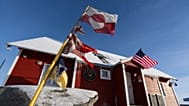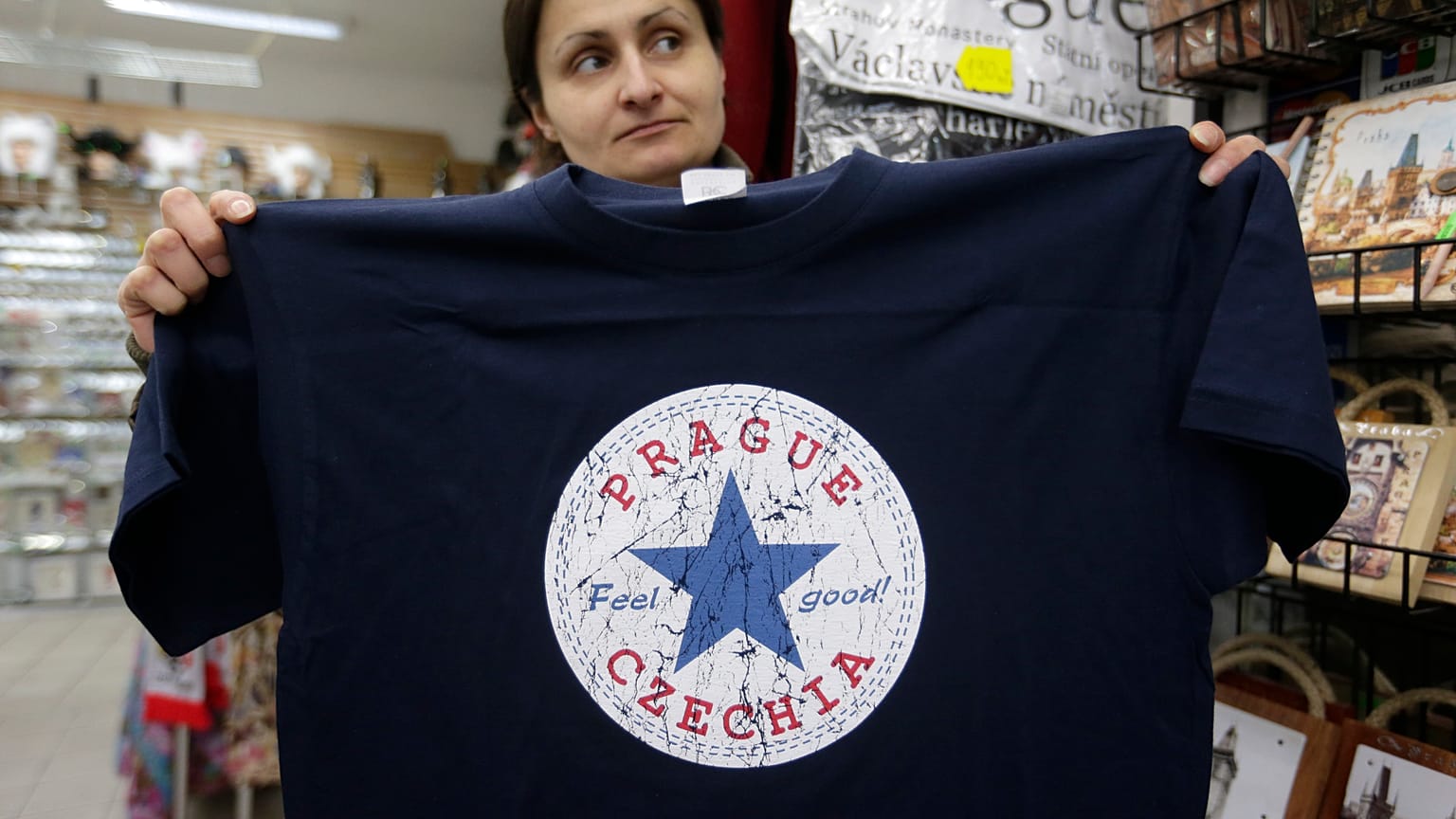The country's prime minister, Andrej Babiš, has previously said he thinks Czechia is a stupid idea.
Czech Prime Minister Andrej Babiš was halfway through an interview with the Wall Street Journal in March when an aide had to inform him that his country had another name in English.
 ADVERTISEMENT
ADVERTISEMENT
 ADVERTISEMENT
ADVERTISEMENT
“I didn’t know this. I don’t like it at all,” he said, the WSJ reported, adding his feeling that the shortened name in English, Czechia, could be confused with Chechnya.
“I don’t like this. We are [the] Czech Republic. We are Czechs. And I don’t know who came with such a stupid idea. Crazy,” he said.
Babiš’ fears are well-founded. In 2013, CNN said the bombers of the Boston Marathon, who were Chechen, were from Czechia. The Czech ambassador in Washington at the time, Petr Gandalovič, was forced to publicly correct the mistake.
That said, Babiš can hardly claim to have not heard of the semantic argument before. The nature of the Czech Republic’s “geographical” English name was a talking point for decades prior to 2016, when the authorities settled on Czechia (pronounced che-ki-ya) in English, the equivalent of the shortened Česko in the Czech language.
In large part, this was a campaign led by President Miloš Zeman after he entered office in 2013, something Babiš also no doubt knew. “I use the word Czechia because it sounds nicer and it’s shorter than the cold Czech Republic,” Zeman said that year, when in Israel.
Czechia has now been accepted by the United Nations and the European Union, as well as by tech giants Google and Apple. Indeed, the UN claims that its origins go far further back, with its first reference in Latin coming in 1634, while Czechian and Czechish were commonly used by English-language speakers in the 19th century.
The Czech Republic is certainly not alone in having more than one name, there are many nations that have both a geographical and political name: When referring to the French Republic, for example, people typically use the name France.
It also only remains an issue amongst English and Czech speakers. In French, some say Tchéquie is more common than la République tchèque, while in both Arabic and Korean the lengthier name is almost never used.
In Germany, it is a little more controversial. The more natural-sounding Tschechei was used to describe parts of the country occupied by the Nazi regime after 1938, and so the less historically-tainted Tschechien is now used.
“There are few things more symbolic than naming one's own country, therefore disagreements are to be expected, even in situations which may look to an outsider as trivial or bizarre,” said Richard Q. Turcsányi, an assistant professor at Mendel University in Brno, a city in the Czech Republic.
Indeed, the history of the Czech lands is somewhat a history of semantic disputes, and when Czech nationalism developed in the late 19th century it was largely based upon language.
As Mary Heimann writes in her book Czechoslovakia: The State That Failed, nationality under the Hapsburgs was a variation on the German model, “in which the ‘nation’ was understood as people linked predominately through language and culture” as opposed to a “people who lived in the same territory.”
In the early 20th century, when part of the Austro-Hungarian multi-ethnic empire, Czech more accurately described Czech language speakers of this area, rather than those born in the Lands of the Bohemian Crown, as it was then known. German-language speakers formed a large percentage of the population in this area for centuries but for early Czech nationalists they weren’t Czech, a controversy that would define much of Europe’s inter-war period.
Czechoslovakia
At the time of Czechoslovakia’s foundation in 1918, the National Geographic mocked the lengthy name as an “unfair handicap for the young state.” More ailing was whether it was the republic of Česko-Slovensko or Československo, as the official name often changed back and forth over the decades.
Slovaks speak a slightly different language than Czechs and saw themselves as a separate nationality under Hapsburg rule, only joining with the Czechs in 1918 in the belief that together they stood a better chance of gaining statehood after the First World War.
But debates over the whether there should be a hyphen signified a difference in culture and political aspirations between the two territories.
Many Slovak nationalists called for formal independence from the centralised and, they said, the discriminatory power of the Czechs based in Prague, first achieved under fascist auspices in 1939 and then democratically and peacefully in 1993.
This issue would revive itself after the fall of communism in 1989 when the so-called “hyphen war” broke out in post-socialist Czechoslovakia.
The breakup of Czechoslovakia during the Velvet Divorce in 1993 cast the hyphen question aside. In its place arose another historical debate about what the new Czech Republic’s official shortened, geographical name should be.
Czechoslovakia – rather than the Czechoslovak Republic – was an accepted geographical name both in English and its equivalent in Czech before the breakup in 1993. Slovakia was also well-used to its own shortened name so was quick to accept Slovensko as the briefer version of the more formal Slovenská Republika – again, both in the English and Slovak languages.
But Czechs had been debating their own moniker since the 1940s, with the question arising again almost every decade since. Many Czech linguists thought the geographical name for their devolved territory should be Česko, meaning Czechia in English. Others thought this would upset regional sensibilities.
The semantic problem is that the root word meaning Czech (Čech) also means Bohemia, the largest and historically most powerful of the three Czech lands: Bohemia to the west, which includes the capital Prague; Moravia to the east; and the little sliver left of Silesia, most of which is now in Poland.
According to Lubomír Kopeček, a political science professor at Masaryk University, resistance to using Česko is mostly an “emotional thing” to do with regional sensibilities.
Under Hapsburg rule, Moravia had its own Diet, or Assembly, as did Silesia. Yet, after the foundation of Czechoslovakia, the Moravians and Silesians also felt that Bohemia and its capital Prague held too much political control, much like the Slovakians.
'It's the Czech Republic, simple'
Even today, regionalism remains a hot-button issue for some. In the 2011 population census, 522,000 people declared themselves to be of Moravian nationality, up from 380,000 a decade beforehand, even though the Czech government doesn’t consider Moravians or Silesians as distinct national groups.
“Regional identities in the Czech Republic are relatively strong – the territory has been clearly divided into three lands since the early Medieval ages – and has remained so,” says Turcsányi, of Mendel University in Brno. These sentiments aren’t exactly irredentist, he added, by local patriotism in Moravia and to a smaller extent in Silesia exists and stands against centralizing power in Prague.
“Moravian regionalism is one of the sources of this resistance,” explained Kopeček. “But much more important is that Česko sounds strange also for the people in the western part of the country.”
Indeed, even after the Czech Nomenclature Committee accepted Česko as the official geographical name in 1993, there was still opposition by leading figures on aesthetic grounds, including by Vaclav Havel, the anti-communist figurehead and the Czech Republic’s first president.
“Slugs creep on my skin when I read or hear the word; I’ll be the last one to use it,” he once reportedly said.
According to Kopeček, the debate is less intense than it was even though there is “still a lot of people, not only in Moravia, who do not use the term.” When the country’s national basketball team put emblazoned Česko on their jerseys this month, it started another smattering of debate on social media. But many national newspapers now use it, though most politicians prefer the longer name which is also used on almost all official documents.
As for Czechia, that remains a perennial talking point, although one few people are that interested in anymore. Indeed, survey after survey has found that most Czechs still prefer the lengthier name over the shortened one in English. The majority find it too harsh sounding; others say that because most English-speakers haven’t caught up to the name change, confusion is avoided by keeping on with the Czech Republic.
On a recent Friday night in Olomouc, a Moravian city, a table of heavy drinkers gave a collective raise of the eyebrow when this topic was broached.
“It’s Czech Republic, simple,” said Tomáš, 32.
Every weekday at 1900 CEST, Uncovering Europe brings you a European story that goes beyond the headlines. Download the Euronews app to get an alert for this and other breaking news. It's available on Apple and Android devices.















